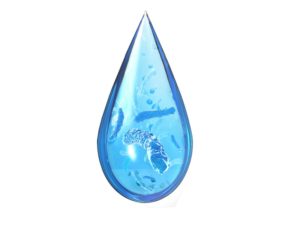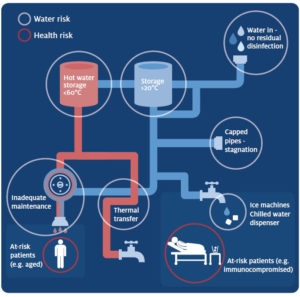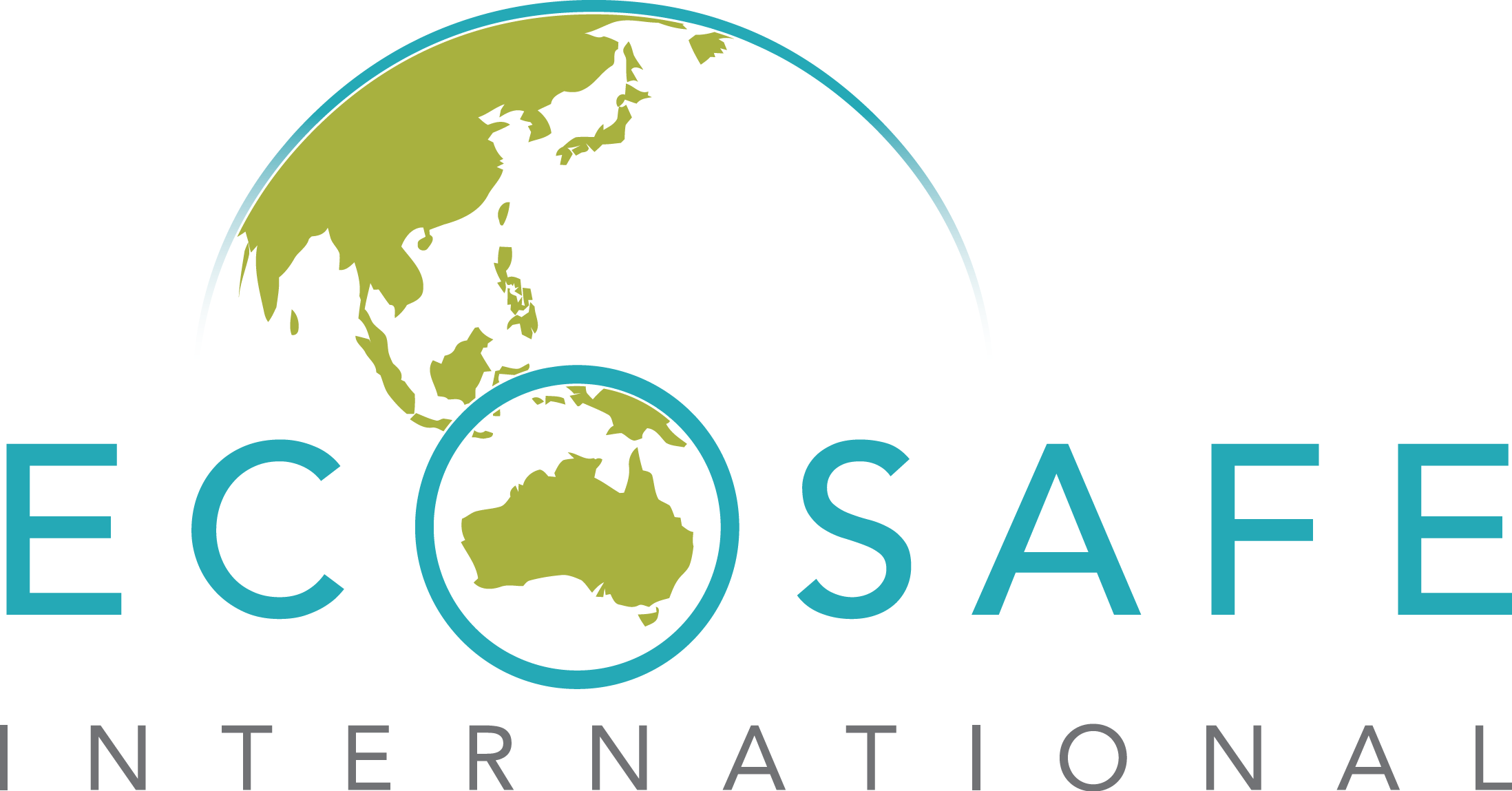What is Legionella
 Legionella bacteria are found naturally in the environment (water and soil) and are the bacteria responsible for causing the respiratory disease Legionnaire’s Disease. A term frequently used to describe Legionnaire’s disease is Legionellosis, which is merely the collective term describing any illness caused by the bacteria Legionella pneumophila and includes Pontiac Fever (milder non-pneumonia flu-like illness). Legionnaire’s disease is responsible for numerous fatalities worldwide every year.
Legionella bacteria are found naturally in the environment (water and soil) and are the bacteria responsible for causing the respiratory disease Legionnaire’s Disease. A term frequently used to describe Legionnaire’s disease is Legionellosis, which is merely the collective term describing any illness caused by the bacteria Legionella pneumophila and includes Pontiac Fever (milder non-pneumonia flu-like illness). Legionnaire’s disease is responsible for numerous fatalities worldwide every year.
Because Legionella bacteria are found naturally within the environment it can be expected that the potential exists for Legionella to enter and proliferate (grow in numbers) within domestic, industrial and commercial water systems we generally encounter daily. For the bacteria to cause ill health effects, a susceptible individual must be exposed and inhale the contaminated aerosol (water droplet containing the Legionella bacteria) and become infected. Susceptibility is largely determined by how robust an individual’s immune systems is and is dependent on several factors including age, sex, existing health status, duration of exposure, size of aerosol and many other factors.
Legionella is undoubtedly a hazard which Australian industry is increasingly being forced to take cognisance of via the continued changes to legislation and State and industry-based guidelines and codes of practice (such as enHealth Guidelines for Legionella Control in the operation and maintenance of drinking water distribution systems in health and aged care facilities – 2015). If you operate water systems such as domestic hot and cold systems, storage tanks, showers, emergency showers, ice machines, vehicle wash systems, water features, fire hose reels, sprinkler systems, dust suppression systems and other spray systems which result in the creation of an aerosol, the potential exists for a foreseeable risk of exposure to Legionella. It is essential that a holistic view is taken and the entire water system supplying the aerosol generating outlet/s is accurately assessed and an effective Legionella management program implemented.
Legionella in hospitals within Asia
A scientific study completed by Yu et al and published by the International Society for Infectious Diseases details the sampling methodology and the analysis results for Legionella pneumophila across sixteen hospitals in Taiwan. The hospitals were voluntarily involved in the survey and the study discusses the implications for hospital infection control within Asia.
Of the 16 hospitals located in Taiwan, 10 hospitals (63%) tested positively for Legionella pneumophila, indicating that these systems were colonised by the bacteria. It is noted by Yu et al (2008) that hospital potable water systems are primary sources for hospital-acquired Legionnaires disease (LD).
According to the study, for similar studies conducted in the United States and Spain, 100% of the hospitals that were colonised by Legionella pneumophila reported that hospital acquired LD was discovered following subsequent clinical evaluations of patients. Therefore, the authors note, hospital-acquired LD is likely to be underdiagnosed in Taiwan and in Asia in general given the high Legionella pneumophila colonisation rate across these 16 hospitals involved in the survey.

For example, a study is referenced which was conducted in Singapore during the years 1998-2002, where no hospital-acquired legionellosis was detected or reported, despite the rate of detection being 24% from standard tap water. Should physicians have been aware of these positive results and clinical evaluations of patients with pneumonia conducted, Yu et al noted that it was likely that hospital-acquired LD would have been discovered.
It is concluded by the authors that hospital-acquired LD may have occurred in Taiwan but not been detected. It is the recommendation of the authors of the article and by the team at Ecosafe International that “Asian public health agencies consider mandating environmental surveillance of Legionella for all hospitals, as is now implemented in many European countries and elsewhere” (Yu et al, 2008).
Environmental monitoring for Legionella pneumophila and subsequent clinical surveillance has proven effective at diagnosing previously unrecognised cases of hospital-acquired LD. To ensure a system is effectively controlled, the authors indicate that “prevention of hospital-acquired LD has been accomplished by disinfecting hospital water systems” (Yu et al, 2008).
View the full scientific study here: https://www.sciencedirect.com/science/article/pii/S1201971207002342
How Ecosafe can help
Should you require assistance with managing the risk of your water systems for Legionella pneumophila in Asia, Ecosafe International has a multidimensional team which includes water quality professionals and specialists (including a Lead Water Management System Auditor Accreditation No: 111355), Legionella specialists, water quality engineers, waste and recycled water specialists, auditors, workplace trainers and compliance specialists who provide our clients with practical, risk based solutions tailored to their needs.
Ecosafe International has a proven record of accomplishment and specialises in a range of consulting and auditing services related to water, environment and health and conduct work for clients both locally and internationally.
If you are interested in knowing more about how we can assist you with managing the water quality risks in your water systems Contact us online or call 1300 73 93 73
Connect with us on Facebook
